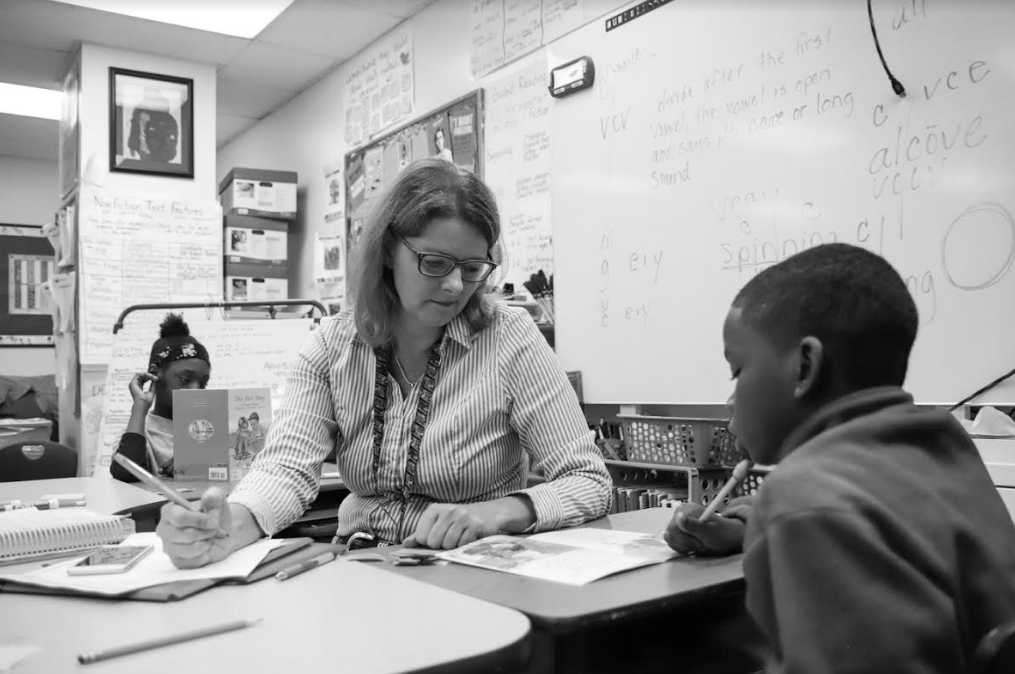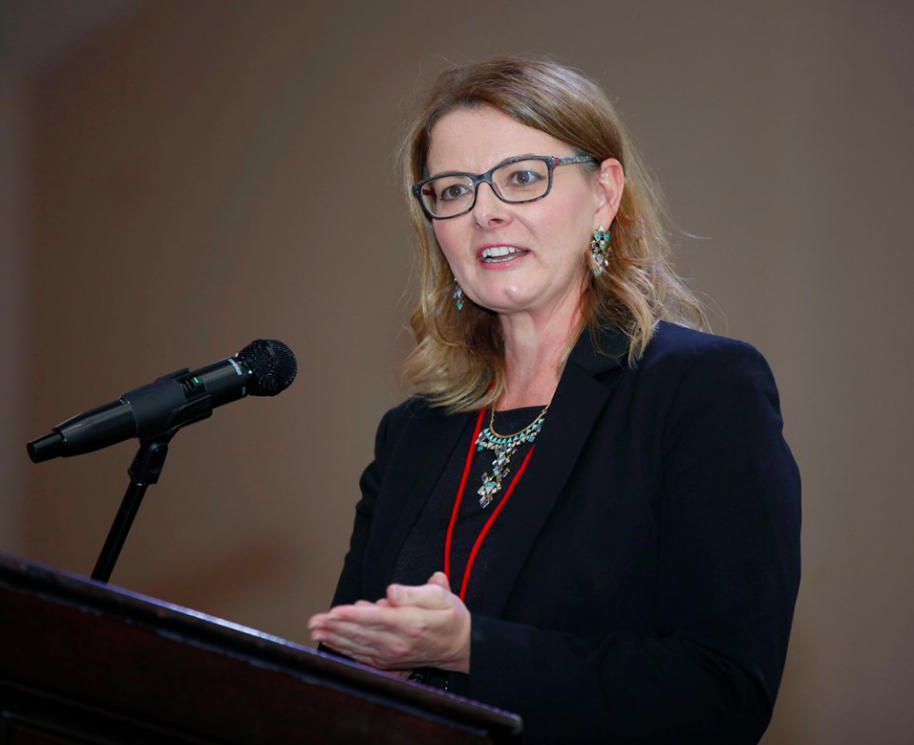2019 RFK Urban Education teacher award winner: Lorrie Weaver

For Lorrie Weaver, Special Education teacher at Foundation Academy, her work has always been personal: She has two sisters with disabilities, and learning up-close about their unique successes, challenges, and needs for support drove her to pursue special education as a career. “My personal mission is to support students with disabilities to achieve at their highest ability so they have access to all possible career or college options allowing them to be productive adult citizens in their community,” Lorrie says.
After spending a year working as a nanny and volunteering in the school of the children she cared for, Lorrie discovered how fulfilling it was to be in a classroom. She earned her undergraduate degree from Seton Hall University, and taught in public school in inclusion and resource settings for seven years. But her passion propelled her to continue her education, working toward her Master’s degree in Special Education, while pulling double-duty at Pinnacle Canyon Academy in Price, Utah, where she learned the importance of school choice as she saw that one size could not fit all. “It mattered that students who had different needs could get what they needed without all of the red tape or politics,” Lorrie explains. “And that students who were bullied had an option other than the traditional public school in their small community, and [that those] who excelled could earn their AA degree while in high school.”
Upon returning to the east coast from Utah, Lorrie was eager to continue her work with students with disabilities, and did so in charter schools in underserved communities in New Jersey. Eventually, she found her “FAmily,” as she calls it, at Foundation Academy in Trenton, which is also where she makes her home.
“I honestly wish people knew how hard special educators work,” Lorrie says of her career.
We teach the students that others often don’t want, don’t know how to teach, and even refuse to teach,” Lorrie says of the challenges of her job. “They most often have the greatest deficits academically and the most challenging behaviors.” However, Lorrie points out, these students are typically the most loving, caring, and honest people you can encounter. Lorrie also observes that there’s rarely such a thing as reusing classroom plans or teaching approaches within special education. “Nothing works the same with every kid,” she explains, pointing out that just because she might teach the same grade, content, or type of disability, she has to adapt her approach constantly to meet different student needs.

“The day one of my students got hearing aides and the FM system to support them that actually worked,” is what Lorrie says is one moment when she truly felt this work was her calling. “We turned on the system and my general education co-teacher talked and the student got the biggest smile on her face and lit up with joy, shouting “I can hear Mrs. K. I can really hear her!”
A similar ah-ha moment occurred when Lorrie taught the other students in the inclusion classes how to communicate in sign language. When they performed several times at school, and even throughout the community, Lorrie realized she had “given them something they could use for life.”
That’s why Lorrie believes real-world learning is so important: She knows students need to be able to work in the real world. When she worked at a school in Newark that had a student with a moderate cognitive impairment, but lacked a program to meet his needs, she started one with the support of a fellow special educator. Despite the fact that he was too young to do a work study in the community, Lorrie decided to create a cooking skills classes, using their central office staff kitchen once a week to prepare small snacks and drinks for staff. “I worked with his English Special Educator and paraprofessional to have them create a grocery list and menu for the week,” Lorrie says. “I would then take him to the local grocery store in Newark and he learned to shop and to price items, comparing prices, communicating with the staff, paying for and receiving change, checking out in the self check out, using extra money for a donut at the Dunkin next door, where the staff made him count his money and his change.”

Eventually, her student prepared an entire Thanksgiving dinner, including creating the menu and invitations, setting the table, and playing host. “He also had the opportunity to meet 1:1 with Mayor Booker and asked him if he could buy stoves and fridges for all schools in Newark so every student could cook,” Lorrie says. “This individualized programming made a significant difference in the life of this child and set him up with real life skills.”
Even Lorrie’s RFK win comes back to her students for her. “It honors the work that I have put in for twenty years fighting for my students to get what they need so, they too, can be successful in this world,” she says of what winning the award means to her. “It means that I can shout from the rooftops that my students are important and they can be successful!”
That ties into how Lorrie perceives a “school that can”, too. To her, schools that can support all students by using their strengths and interests in addition to traditional academic teaching methods, and teachers that can work to differentiate for all their students, regardless of behavior or academic or emotional level. Teachers that can work to build relationships, she says. Students that can, in her view, work hard every day to achieve their goals by problem solving, asking for help, and bouncing back when challenges arise.
“Disability rights are human rights and RFK [Human Rights] recognizes that, so [for them and Schools That Can] to honor me with this award gives me hope that students with disabilities and those who teach them will continue to be recognized for their daily hard work and effort,” Lorrie concludes.

